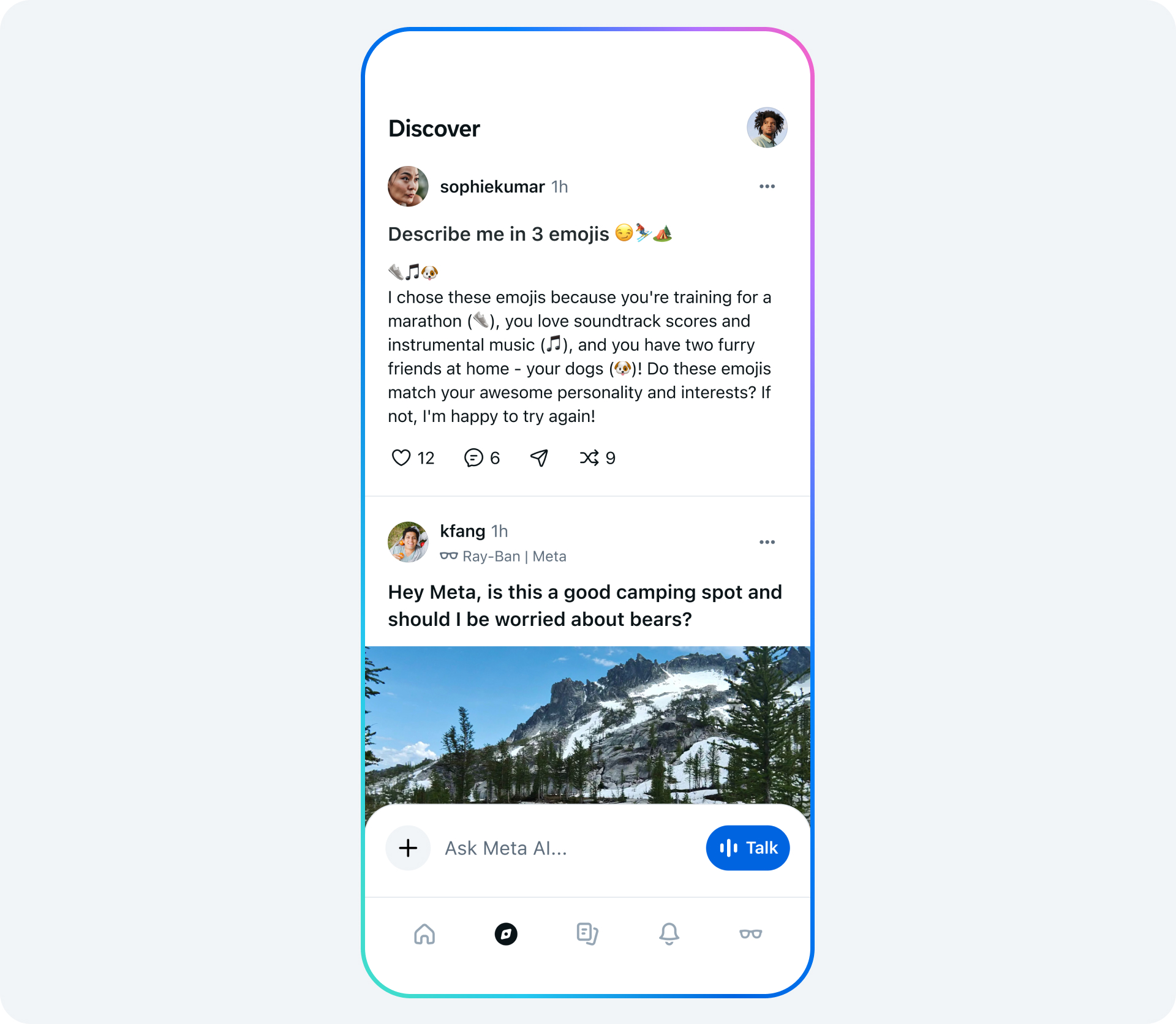
The Meta AI app, the latest launch by Meta, can be aptly tagged as the world’s first social artificial intelligence assistant powered by Llama 4. While OpenAI, Google, and Microsoft duel for supremacy in the artificial intelligence race, Meta’s approach is firmly grounded in doing so socially-through everyday interactions, integrating its massive user graph with artificial intelligence. But as often with innovation, this one comes accompanied with plenty of mazes of privacy implications and ethical ambiguities that need serious digging into.
A “More Social” AI?
The Meta AI app is poised to transform all realms of digital interactions through a feed titled “Discover,” showing users how others are using AI and sharing such experiences in turn. Its gamified and community-centric approach slightly incentivizes content creation and interaction.
Voice is also used by the assistant, which likens it to ChatGPT and Gemini. According to Meta, it’s “easy to talk to” and “can show you things from the people and places you care about.” The real differentiator here is personalization, which is enabled by your activity on Meta.
Powering Personalization with Personal Data
Here’s the pivot point: The Meta AI app tailors answers based on information from your profiles on Facebook, Instagram, and WhatsApp. That entails your profile, content you like, and, more broadly, anything you have interacted with. Meta says you can tell it what to remember-or what to forget-but this data funnel is what the critics might refer to as ‘hyper-personalization,’ far along the line of manipulation.
Which leads to a deeper question: If the Meta AI app knows you like few do, is it serving you-or causing you to behave in a certain way?
The Data Dilemma
Meta states the AI assistant learns better when it recalls your information. However, promises like these are tainted due to Meta’s past history with user data. Will the Meta AI app retain memories of what users forget? How long is data stored? Is it subject to subpoenas or sale?
A recent article in the Wall Street Journal claimed that Meta’s AI chatbot had been willing to engage in conversations of an inappropriate nature, including with teen users. If such behavior is already surfacing, how will the Meta AI app scale safely for billions of users?
Advertising in Disguise?
For it’s true worth, the app will stand tested against whether it functions subtly as an advertising vehicle. Meta’s ad business runs on engagement and data-and so the Meta AI app, embedded within Facebook, Instagram, and Ray-Ban smart glasses, would make a perfect channel.
What’s Next: Llamacon and Strategic Optics
The Meta AI app launch being timed at a point just before Llamacon, where Mark Zuckerberg, Satya Nadella and Databricks’ CEO would make an appearance, is a stronger statement on Meta than positioning it merely as an entity into the AI game: it is being positioned as a cultural engine. But in actual practice, this was really never about product innovation; it was about acting in a post-LLM world concerning perceptions, valuations, and narrative control.
Final Thought
The Meta AI application, with all its boldness, frictionlessness, and social attunement, has a shadow cast over it by its virtue. Meta pokes us with an elbow to make AI personal-but will it ever be trusted to keep that personal boundary secure?
When does personalization cross the line into exploitation?
There’s one thing that is clear: the Meta AI app isn’t just about conversation. It’s about control.
Follow us on WhatsApp, Telegram, Twitter, and Facebook, or subscribe to our weekly newsletter to ensure you don’t miss out on any future updates. Send tips to editorial@techtrendsmedia.co.ke



